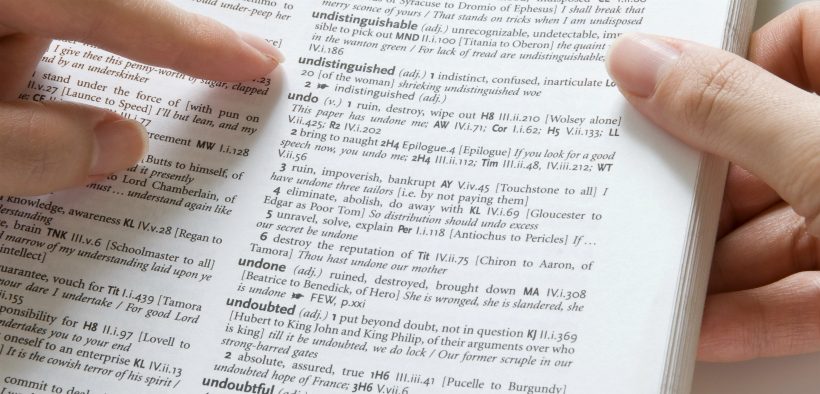In the very first article I ever wrote for The Teaching Professor, I quoted Johann Wolfgang von Goethe’s Elective Affinities: “A teacher who can arouse a feeling for one single good action, for one single good poem, accomplishes more than he who fills our memory with rows on rows of natural objects, classified with name and form.” My article, “The Lesson Is Too Much with Us: Recognizing Teaching Moments,” has a simple thesis: “Sometimes we are so concerned with following our lesson plans to the letter that we miss what is truly important: teaching moments.” In my article, I define “teaching moments” as organic instances where the possibility of pedagogy arises from a teacher’s listening skills. Students’ obvious interest in a specific aspect of class discussion inspires the teacher to “let go” of the day’s plans and journey with the students down a new, unforeseen, and potentially fruitful pathway toward learning.
Critical Moments: How Focusing on Individual Words Can Lead to Learning

- Tags: critical thinking
Related Articles
I have two loves: teaching and learning. Although I love them for different reasons, I’ve been passionate about...
Active learning is a mostly meaningless educational buzzword. It’s a feel-good, intuitively popular term that indicates concern for...
Perhaps the earliest introduction a student has with a course is the syllabus as it’s generally the first...
Generative AI allows instructors to create interactive, self-directed review activities for their courses. The beauty of these activities...
I’ve often felt that a teacher’s life is suspended, Janus-like, between past experiences and future hopes; it’s only...
I teach first-year writing at a small liberal arts college, and on the first day of class, I...
Proponents of rubrics champion them as a means of ensuring consistency in grading, not only between students within...








